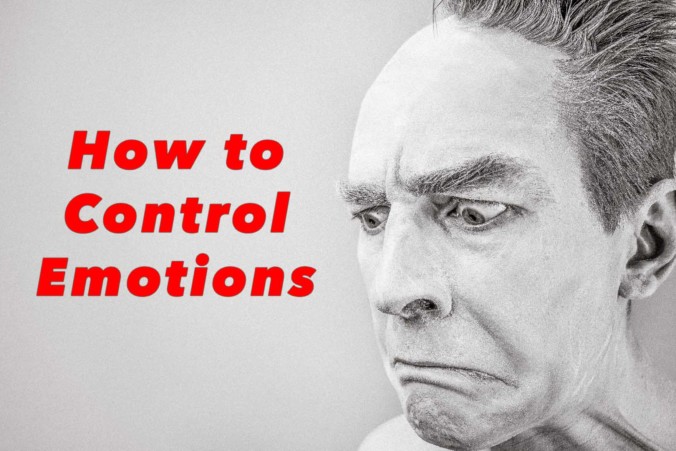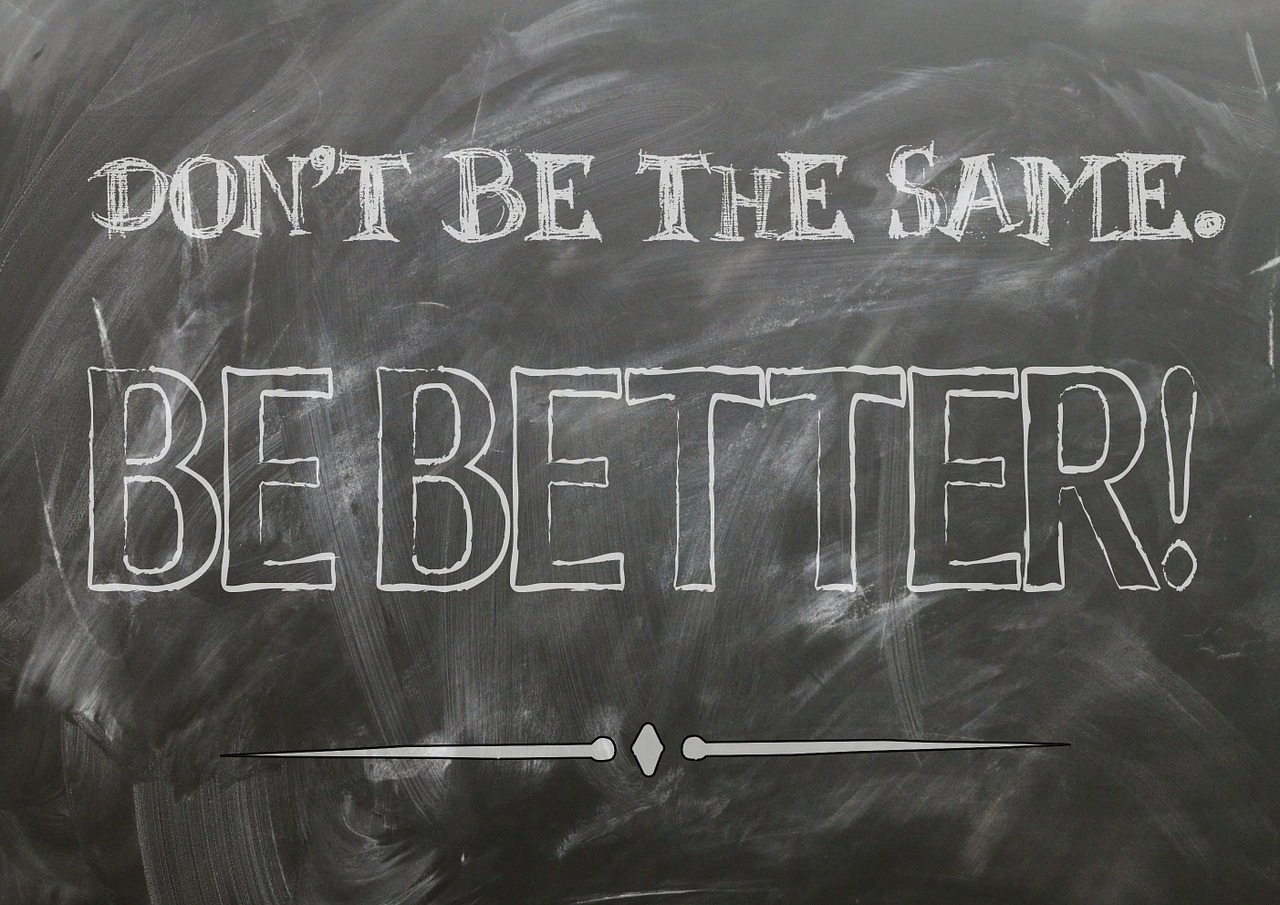Being of emotional character type isn’t easy. I say this because this is how I felt my whole life, and this is what I observe amongst some of my friends. On the one hand, a life full of vivid emotions is exciting, but on the other hand, it’s like a rollercoaster, like an animal that’s impossible to tame.
Of course, like anything else in life, being emotional has its benefits, but that’s not my focus here today. I am talking about the emotions that lead us to sudden sadness, hate or anger, the unwillingness to hold back destructive words or phrases aimed at others. I am talking about the emotions that get us in trouble at work, at home and out on the streets. These are the emotions that put us into situations that we later regret, that we would have never gotten into, if only we were better at controlling ourselves.
How to Control Emotions
If you want to learn how to control emotions, you have to know some of the basics. It’s hard to do so without having any practical tips to integrate. Simply saying “from today on, I will become calm” doesn’t work. I’ve tried it hundreds of times.
Please find below some tips and tricks that can help you attain more self-control. These are the things that have helped me understand how to control emotions in a more effective way.
Avoid difficult situations
The first thing worth mentioning is that you shouldn’t make things so difficult for yourself.
Many of us have troubles handling difficult situations, especially ones that anger us. But despite knowing that a certain situation cannot lead to anything good, we still find ourselves repeatedly being absorbed by it.
For example, when I was younger, I used to argue constantly with my parents about vegetarianism. Because I said “no” to meat, I felt that I had a few good arguments when my parents talked about the importance of meat in our diet. I pretty much knew that there was nothing I could say to prove my parents wrong, yet I kept arguing with them on a weekly basis. As a result, these arguments brought only anger in me.
Other examples of topics that people often get triggered by are religion, politics, style of clothes, music, art, etc. If you know that you or the person that you are talking to cannot handle a certain topic well, then don’t bring it up. I know it feels sometimes like you are right and the other person is wrong, and that you must share your opinion. But if you already know beforehand that it will become a very heated debate full of anger, then don’t bring it up. Certain discussions are strictly opinion-based, and therefore quite pointless. All they will do is worsen a good relationship.

A book I read not so long ago is called How to Win Friends and Influence People by Dale Carnegie. It shows how you can politely talk people into better understanding you, or even into doing the things that you want. I highly recommend it if you have troubles getting your ideas across to other people, especially if you do it in a very emotional way.
Journalling
I will be honest with you, putting yourself in control of your emotions is a tremendous task. It’s especially difficult, simply because you are trying to change yourself on one of the deepest levels.
Changing your diet, or the amount of time you spend a day on social networks or exercising can be demanding, but still doable. These are just habits. Your emotions, on the other hand, are a whole different story. They aren’t your habits, hobbies or the things you do – they are you!
That being said, there are certain things you can implement to help yourself make a gradual approach towards becoming more calm. One of them is having a daily journal.
In a journal, you simply write down at moments of anger, frustration, fear, sadness, etc. your exact feelings. You write what caused them and what outcome they brought.
“But how will this help me?” – I hear you asking. Well, the more you do this, the more aware you become of yourself. Sooner or later, you will be able to catch your i.e. anger at its earliest stages, before the point of no return. Trust me, it’s so much easier to prevent a certain feeling that it is to stop it once it’s already there. I can’t stress enough the importance of having a journal on the path of learning how to control emotions.
Dropping down through
One NLP technique that you can use to let go of unwanted emotions is the drop down through technique. Although this technique does not particularly help you prevent negative or other unwanted emotions, it’s good to have in your arsenal when learning how to control emotions.
Imagine you have an experience, feeling or emotion that is bothering you. It’s really making your life difficult. Now imagine what it feels like to drop through something. Take that experience, feeling or emotion, and drop right through it. Just let yourself go and drop.
Once you’ve fallen right through it, what do you see? What feelings and emotions are there? Are they negative or positive? If they are negative, repeat the process. Drop through the new emotion or feeling that you found beneath the first one. Keep repeating this process until you either see a positive feeling or emotion, or until there are no feelings at all.
NLP Anchoring
Another very popular NLP technique that helps with emotions is called the NLP anchoring technique.
In a nutshell, the NLP anchoring technique is about feeling a certain beneficial way when you are in need of it. For instance, you feel like you are about to burst with anger. But instead of becoming furious, you do something as simple as touching your left elbow, which completely changes your mood back to happy.
You can find out how to implement the technique here: The NLP Anchoring Technique – Your Success Is a Finger Snap Away
Share it with others
One reason why many of us have so much anger, jealousy and hate piling up is because we keep it inside. Don’t.
Share your feelings with friends and family. Let them know how you feel. A lot of the time we become almost obsessed with our own feelings, thoughts and opinions. But you always have to keep in mind that they are not the truth. They are only what you perceive as the truth.
When you share with others, you not only let go of excess steam, but you also get another person’s opinion. Having another view of the situation may be crucial when making an important decision, that you later will not regret.
Meditate
If you are anything like me, a person that has always had a short temper, meditation is a must for you.
Meditation forces us to become more calm, helps with stress and anxiety, and makes us more aware of self and others. Of course, this is not a quick fix. Meditation is something you have to do daily, and its effects are not instant.
However, if you do decide to integrate meditation into your life, you can be confident that it will change your life towards the better. It’s a slow, but sure road to happiness.

Recommended read: Why Meditation Is So Life Changing: 6 Reasons to Meditate Every Day
Don’t react. Respond
One last, but not least tip about helping us learn how to control emotions is the way in which we respond in difficult situations.
When we don’t like something and are angered, most of us, especially those that have the shortest temper, can react in a very sudden and harsh way. These reactions are usually what later lead us to regrets and wishing that we would be a little better at controlling our emotions.
Recommended read: How to Control Anger and Hate Towards Other People – Living Aware
Although probably the easiest tip, it is the hardest to implement. Next time, when something happens to you that you don’t like, or someone says something that you usually respond to with anger, just stop for a second and take a deep breath. You need that moment of calmness to be able to make a conscious decision that you will not later regret.
In other words, your goal is to learn to respond in tough situations, instead of reacting to them. Reacting means cursing, shouting, crying, throwing hands around. Responding means finding a better answer, staying calm, hearing what the other person is saying or simply walking away with no damage done to yourself or others.
I know that some of these things are not that easy to implement when learning how to control emotions, but please give it a try. Emotions and feelings sit so deep in us, that it is impossible to change them without changing first how we perceive the world. But as soon as you do start putting that bit of extra effort, you will be amazed by just how much more enjoyable life will become. You will not only affect positively yourself, but also the people around you.
Thank you for stopping by and good luck!
Please click below to subscribe and to follow us on social media:
Click here to follow us via E-mail!
Click here to follow us on Facebook!
Click here to follow us on YouTube!
Click here to follow us on Instagram!
Click here to follow us on Twitter!


 15 Best Inspirational Movies That Teach to Never Give Up
15 Best Inspirational Movies That Teach to Never Give Up
 50+ Best Self-Help Books That Will Change Your Life Forever
50+ Best Self-Help Books That Will Change Your Life Forever
 Short Motivational Stories of Failure and Success That You Must Know
Short Motivational Stories of Failure and Success That You Must Know
 What to Do When Someone Is Better Than You? – Dealing with Jealousy
What to Do When Someone Is Better Than You? – Dealing with Jealousy
 10 Examples Where the Power of Positive Thinking Kicks Ass!
10 Examples Where the Power of Positive Thinking Kicks Ass!

Leave a Reply